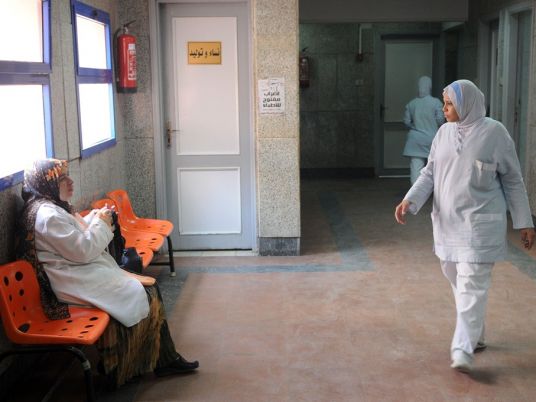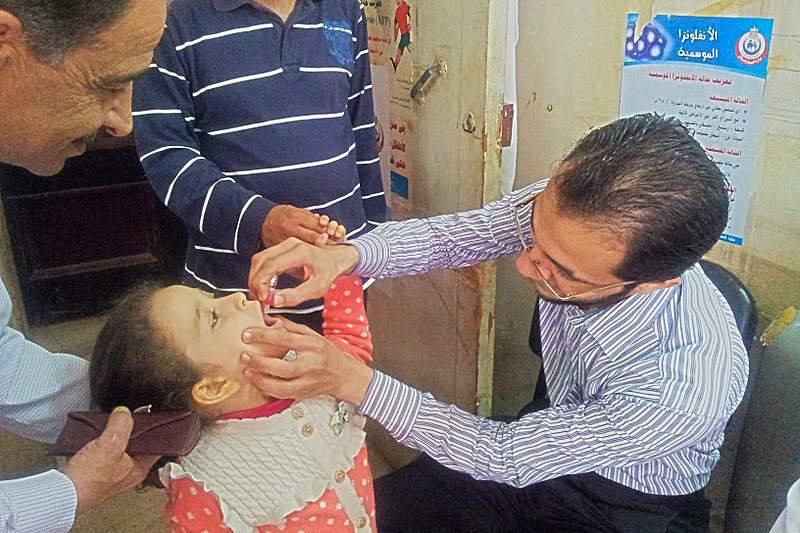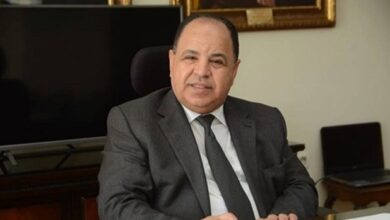
The Egyptian Doctors Syndicate has expressed concern over the increasing influence of Gulf-based companies in the Egyptian health sector, increasing their stakes in hospitals, laboratories and pharmaceutical companies, while buying some outright.
Their concerns are magnified by fears of creeping privatization of the health sector, tied to support from foreign funding institutions such as the World Bank.
Among the key players is multinational investment firm Abraaj Capital Group, which entered the Egyptian health sector in 2008 with the acquisition of prominent medical laboratory Al-Borg, worth LE773.3 million, according to the syndicate. In August 2012, the company purchased a second big laboratory, Al-Mokhtabar, in a deal worth LE 1.27 billion.
In the same year, the two laboratories were merged into the company's firm Integrated Diagnostic Holdings, which also has operations in Jordan and Sudan. In March 2015, Abraaj Capital announced that it has established an investment group for healthcare in Egypt and Tunisia worth US$200 million.
Officials at the syndicate urged the Health Ministry to tighten control on the activity of Abraaj Capital, stressing the need for the government and presidential institutions to intervene, declaring all the company's deals relating to laboratories, hospitals and pharmaceutical companies.
The syndicate says that in July 2014 Abraaj Capital purchased 52.7 percent of Cairo Specialized Hospital for LE106 million, as well as Cleopatra Hospital in a deal worth LE 770 million. It is currently in negotiations to purchase Amon pharmaceutical company, says the syndicate.
Ahmed Abu al-Naja, a former physician at Cleopatra Hospital, said that during negotiations investors of different nationalities visited the hospital, asking about the number of operations that are carried out and what medical supplies they import.
“It’s a disaster,” said Mona Mina, the syndicate's undersecretary.
She explained that Abraj Capital is seeking to take control of Egypt's biggest private hospitals just as the process of promoting private medical insurance is starting in Egypt.
Moreover, Khairy Abdel Dayem, president of the syndicate, said that, in line with the Egyptian Constitution, a universial health care system is due to be applied in Egypt, with the private sector supplying a large proportion of services to patients.
In a press conference, Abdel Dayem said that foreign investment is welcome within the framework of the national interests of the Egyptian people, but that medical care cannot be seen as a commodity to be traded or controlled by any foreign investor.
“After the uproar raised by the syndicate, the company stopped announcing new purchases of hospitals, which is terrifying. Meanwhile, there are leaks saying that the company has purchased Al-Nil Al-Badrawy hospital a long time back, while they apply continuous pressure to buy Al-Nozha Al-Gadida hospital,” Mina said on her official Facebook account.
“Abraij Capital is a multinational group based in the UAE Free Zone, and the company's own rules prevent them revealing the shareholders, whether they are individuals or governments, which means our country is handing the control of its health institutions to unknown systems, which is beyond terrifying,” Mina said.
Echoing Mina's concerns, Mohamed Hassan, the head of the Committee for Defending People’s Rights to Health, told Egypt Independent that the situation is "horrific", especially since the company is based outside of Egypt, with multinational shareholders, meaning there is no clarity on who is investing in Egypt's health sector.
On the flip-side, speaking to DotMasr news website, the former managing director of Al-Borg laboratories said that the Egyptian government owns the lion's share of health institutions. He said the government owns 90 percent of hospitals in Egypt, with the rest in the private sector. Meanwhile, the private sector owns 33 percent of Egypt's 7,500 laboratories, while the government and various public-sector entities own the rest.
In a recent similar scenario, the oil-rich Kingdom of Saudi Arabia has agreed to give Egypt a concessional loan worth $120 million to improve Qasr al-Aini Hospital, the historical teaching hospital of Cairo University. The loan is to be repaid over 20 years, including a five-year grace period.
However the syndicate said that it is interested in developing Qasr al-Aini and cares about its maintenance, bearing in mind its important position as a key state asset in public health provision. The syndicate has expressed concern about the fund’s terms and conditions and the impact it might have on the provision of free medical care.
Among the syndicates' concerns is who will sign the agreement on the Egyptian side, whether it be the Higher Education Ministry or the Dean of Qasr al-Aini. If it is the latter, says the syndicate, the hospital will be responsible for repaying the loan.
According to new legislation on medical education, the university hospitals are technically, financially and administratively independent, falling under the supervision of the university’s president and the dean of the faculty of medicine.
Fathy Khodair, the dean of Qasr al-Aini, responded to the syndicate in an official statement, saying that the Finance Ministry will repay the Saudi loan, not the hospital, and that the financial arrangment would not interfere with free health-care provision for the poor.
“The agreement, which was made within the last eight months, comes from the strong desire within the nation for speedy improvements to the hospital, which mostly serves the poor and hosts two million patients annually,” Khodair said.
But Hassan is not convinced, saying, “The dean’s statement is not comprehensive, and I believe the loan is a quiet attempt to privatize Qasr al-Aini, especially since the government did not publicly and transparently declare the terms, merely stating how the agreement would develop Qasr al-Aini.”
Hassan said the deal is part of a government plan to privatize the public health sector in Egypt, which is in turn part of an agreement signed with the World Bank and USAID for the promotion of the private sector.
“To stop privatization, we need public pressure, and if that does not happen, then the country will face a crisis," he said.
Salah Hamed, the former president of the Nasser Institute for Research and Treatment, told Egypt Independent that the government only concerned with the profits to be made, but people should be made aware of the impact these policies will have on middle-income families and the quality of their treatment.
“As for the poor patients, I assure you that their basic rights will no longer be guaranteed, especially since the health system in Egypt is already failing and fragile and needs a big public effort to completely transform it,” Hamed said.




